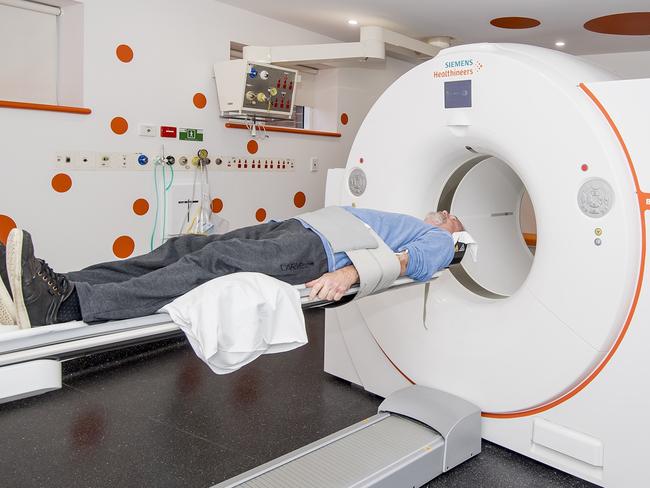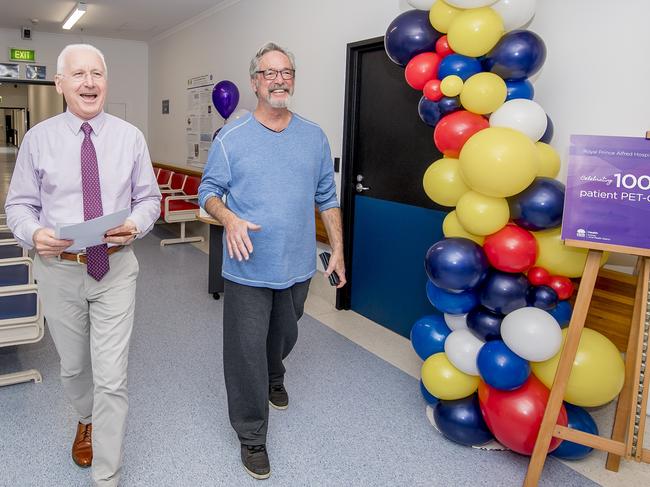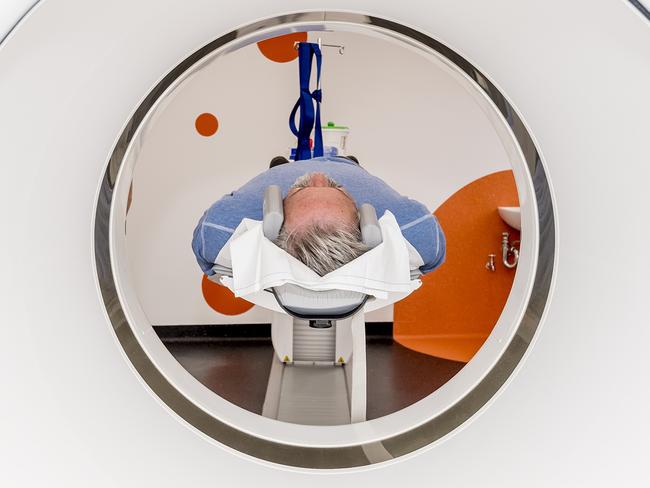Royal Prince Alfred welcomes cancer treatment breakthrough
Royal Prince Alfred Hospital is the first facility in the southern hemisphere to welcome two ‘sophisticated’ new machines that detect signs of disease that were previously invisible.
Two new multimillion-dollar scanners will ensure Royal Prince Alfred Hospital remains a world-leader in the diagnosis and treatment of cancer.
The Camperdown facility has become the first hospital in the southern hemisphere to introduce the biograph vision machine, which combines a PET scanner and CT scanner in one device.
The machines can detect very small sites of disease and abnormalities that were previously invisible, and what immediate action doctors need to take, according to the district’s clinical director of medical imaging Professor Michael Fulham.

Sydney Local Health District has spent $7.2 million on the machines — one is already being used at the hospital and the other will be installed later in August.
“This (machine) helps determine if the cancer has spread and this is critical for determining the best treatment for cancer patients,” Prof Fulham said.
“We can also tell sooner if the drugs being used to treat the disease are working.”
Thanks to advances in technology, biograph vision machines emit lower doses of radiation, scan faster and produce higher-resolution photographs.

They are mainly used in cancer treatment but can also be employed to treat patients with heart and neurological conditions, epilepsy and dementia.
RPA also recently celebrated the 100,000th PET patient scan at its facility, which performs up to 30 scans per day.
The recipient was architect Peter Nemes, 69, who collapsed without warning 18 months ago. He was later diagnosed with a dissected aorta — a tear in the heart’s main blood vessel.

Mr Nemes said his wife was informed by doctors he was “not likely to survive” the episode: “But luckily, everything gradually turned around and I’m here to tell the story.”
Health district chief executive Dr Teresa Anderson hailed the new machines and “significant” scanning milestone.
“RPA will continue to build its medical imaging capacity, in line with technological advances, changing models of care and changing population demographics,” Dr Anderson said.


